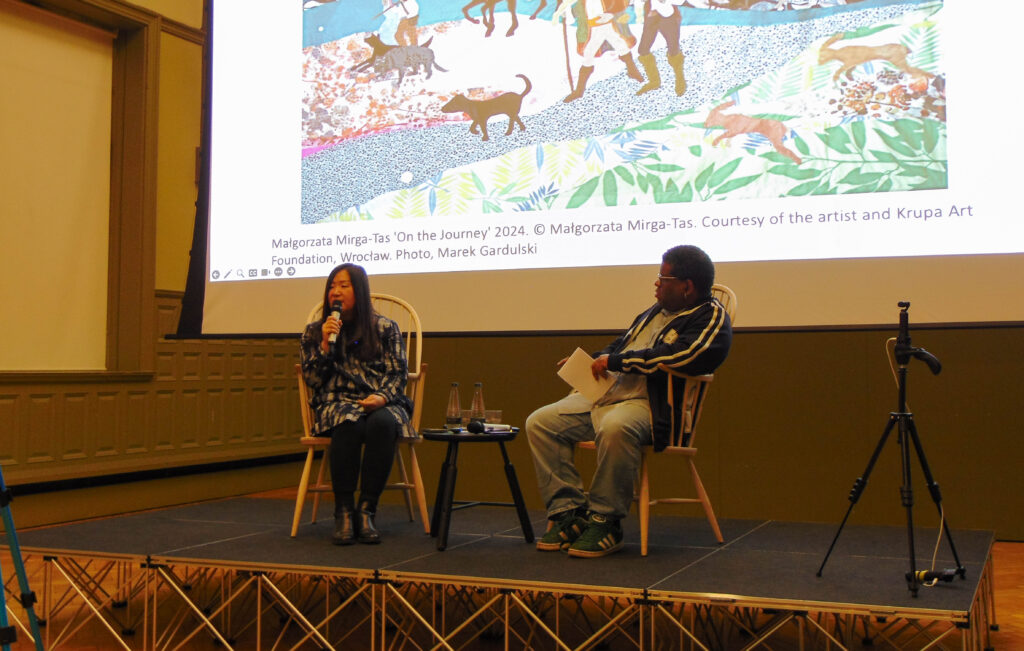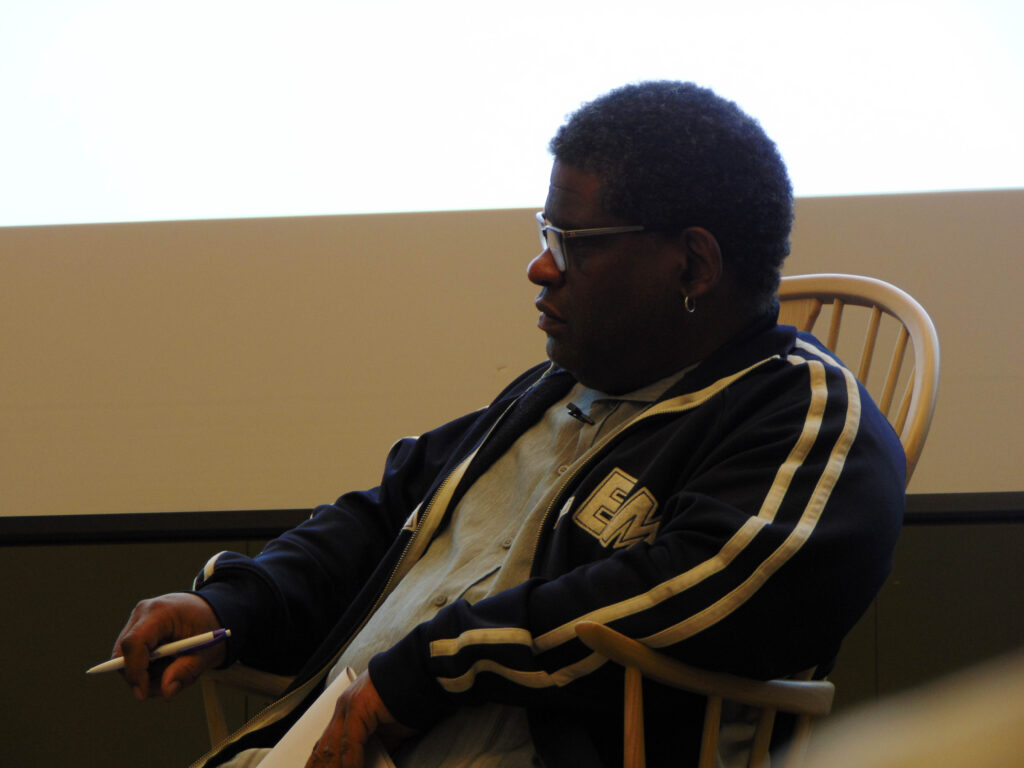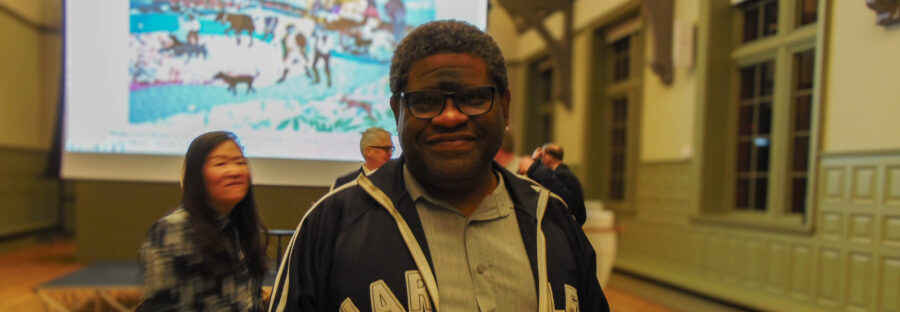Gary Younge: ‘Racism is a language of many dialects’
- Featured image credit: Leslie Kerwin
“I came into journalism through language, because I studied to be an interpreter and a translator. It was in the process of knowing how to translate that I fell in love with language, and the ability to manipulate it, to work it, knead it, and make it do what I wanted it to do.”
The Whitworth Gallery’s Grand Hall was packed on Thursday night as over a hundred people attended to commemorate Dr. Sook-Kyung Lee’s appointment as Professor of Curatorial Practices at the University of Manchester. Interviewing her onstage was Gary Younge – ex-editor-at-large of The Guardian newspaper, and current sociology professor at UoM.
Younge had initially been invited to speak to Dr. Lee as part of her inaugural lecture, which, in a move somewhat transgressive of university tradition, she had designed as a ‘dialogue’ to go more in-depth on her career in curation and fine arts. As the floor opened up to audience questions, Younge was himself quizzed on his own experience as both a journalist and a sociology professor.
“I really did enjoy what being a translator demanded of me,” he said to the audience. “What it demanded of me was trying to recreate the feeling and the mood of one word in another language – what you lose, and what you gain.
“Most of the world is bilingual, and it’s actually quite rare to be unilingual – if not rare, then you’re certainly a minority. In that sense, as [Sook-Kyung Lee] described earlier – that art has a language, that politics has a language – I believe in racism being a language of many dialects: it’s spoken somewhat differently in different places.”

‘A struggle for personal freedom’
As a journalist of Bajan heritage, the issue of racism and diversity at large had been a pervasive force throughout Younge’s career, in what he described as ‘the burden of representation.’ Speaking to NQ, he spoke further: “You never fully deal with it. You’re constantly negotiating it, and it doesn’t go away.
“It’s important to recognise the burden and then almost kind of shrug it off. When I started in journalism, there were people who said you should never write about race. There were people who said you should only write about race. And it was my job to insist on writing about the things I wanted to write about, whether it be race or not.
“If you’re from an underrepresented group, that is your fight in general, and to understand yourself as a human being, and to live in a world where if people can’t understand that they can go fuck themselves, that is our challenge, right? I do see it as part of a struggle for my own personal freedom.”
It was Younge’s perseverance for this freedom throughout his career that would eventually see him appointed as The Guardian’s US correspondent in 2003, covering some of the biggest stories in recent memory such as Hurricane Katrina and the Wall Street Crash. His work took him across Europe, Africa, the Caribbean, and the US, and he has earned multiple awards for his reporting – including 2018’s Broadsheet Feature Writer of the Year for a his series on white America, as well as knife crime in the UK.

Despite his mainstream success, being considered a role model is an idea he distances himself from: “Well, with all gratitude and respect, I try and ignore it. Because then that’s a different kind of burden – nobody elected me, so I only represent myself,” he said.
“I see it, I recognise it, but if I’m not going to take any notice of the criticism – of which there is a lot – then I have to find a way to tune out the praise as well so that I can just carry on doing what I want to do.”
Unique stories, and the threat of AI
What he wants to do is “veer into the spaces not sought by other journalists”, according to the Mount Holyoke University, who awarded him an Honorary Doctorate of Humane Letters in 2019. Discussing his views on the journalism industry, Younge agreed that embracing being your own person played a role in producing unique stories.
“AI will make a lot of journalists lazy – but it can only really trouble the work of those who are doing generic work, which is actually, unfortunately, too many of them. What AI can’t do is go out, talk to people, assess the situation, look them in the eye, all of that stuff.
“My previous book was about all the kids that had got shot dead in one day in America, and it employed all the things that I learned right at the beginning of my journalism career in terms of finding people, getting them to talk to you, going through court documents… It was all the nuts and bolts, and it’s actually very difficult to do anything in this job without having them.
“I think in journalism there’s a lot of stuff you have to be able to do and get right, to write news and to go out and collect information. There’s a lot of stuff that I’ve written that anybody could have written. But then you’re saving yourself for the moment when you get to really bring yourself into something.”


